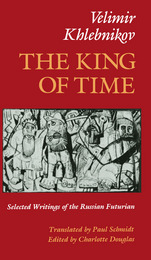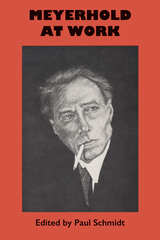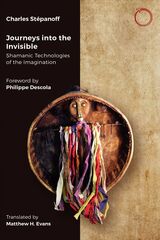
Dubbed by his fellow Futurists the "King of Time," Velimir Khlebnikov (1885-1922) spent his entire brief life searching for a new poetic language to express his convictions about the rhythm of history, the correspondence between human behavior and the "language of the stars." The result was a vast body of poetry and prose that has been called hermetic, incomprehensible, even deranged. Of all this tragic generation of Russian poets (including Blok, Esenin, and Mayakovsky), Khlebnikov has been perhaps the most praised and the more censured.
This first volume of the Collected Works, an edition sponsored by the Dia Art Foundation, will do much to establish the counterimage of Khlebnikov as an honest, serious writer. The 117 letters published here for the first time in English reveal an ebullient, humane, impractical, but deliberate working artist. We read of the continuing involvement with his family throughout his vagabond life (pleas to his smartest sister, Vera, to break out of the mold, pleas to his scholarly father not to condemn and to send a warm overcoat); the naive pleasure he took in being applauded by other artists; his insistence that a young girl's simple verses be included in one of the typically outrageous Futurist publications of the time; his jealous fury at the appearance in Moscow of the Italian Futurist Marinetti; a first draft of his famous zoo poem ("O Garden of Animals!"); his seriocomic but ultimately shattering efforts to be released from army service; his inexhaustibly courageous confrontation with his own disease and excruciating poverty; and always his deadly earnest attempt to make sense of numbers, language, suffering, politics, and the exigencies of publication.
The theoretical writings presented here are even more important than the letters to an understanding of Khlebnikov's creative output. In the scientific articles written before 1910, we discern foreshadowings of major patterns of later poetic work. In the pan-Slavic proclamations of 1908-1914, we find explicit connections between cultural roots and linguistic ramifications. In the semantic excursuses beginning in 1915, we can see Khlebnikov's experiments with consonants, nouns, and definitions spelled out in accessible, if arid, form. The essays of 1916-1922 take us into the future of Planet Earth, visions of universal order and accomplishment that no longer seem so farfetched but indeed resonate for modern readers.

Dubbed "a Columbus of new poetic continents" because of his search for a poetics as diverse as the universe itself, Velimir Khlebnikov is the creator of some of the most extraordinary poems in the Russian language. Sometimes surreal, sometimes esoteric, but always dazzlingly innovative, the 192 poems in this volume range broadly from the lyrical to the epic.
One of the founders of Russian Futurism, Khlebnikov spent his entire brief life searching for a new poetic language to express his convictions about the rhythm of history and the connection between the truth of a poet's language and the cosmic truth about the universe. His poetry is characterized by often radical experimentation with language and words, a forceful utopian vision, complex theories of time and history, and multiple poetic personae: from an infantry commander to a Carthaginian war hero, from Cleopatra's paramour to the letters of the alphabet. Completing the Collected Works of Velimir Khlebnikov, Selected Poems gives us insight into the imagination of a remarkable artist.

Velimir Khlebnikov, who died in 1922 at the age of thirty-six, is one of the great innovators of literary modernism. In Russia a powerful and growing mythology surrounds this Futurist poet and his reputation elsewhere continues to mount.
The second volume of the Collected Works consists of Khlebnikov's fiction (thirty-five short stories, dreams, mysteries, and fanciful folktales), his plays, and his unique supersagas, a syncretic genre he created to encompass his iconoclastic view of the world. Paul Schmidt's are the first translations of these works into English. They chronicle the artist's imagination in his feverish search for a poetics that could be as diverse as the universe itself.
The fictions, ranging from the mysterious "Murksong" to the epic "Yasir," show a great variety of styles and themes. But it is in the dramatic text that we best see Khlebnikov's struggle to find a workable form for his vision. The Girl-God, symbolist-inspired, is a mélange of stylistic shifts and impossible scene changes. In The Little Devil, The Marquise des S., and the sardonic Miss Death Makes a Mistakes, Khlebnikov finally finds a stageable theatrical form, in a mixture of satire, colloquial speech, and poetic reflections on art and immortality. The dramatist reaches even higher in the supersagas Otter's Children and Zangezi, achieving a Wagnerian fusion of action, poetry, history, theory, and the musical rhythms of incantation.

Velimir Khlebnikov, who died in 1922 at the age of thirty-six, is one of the great, untranslated Russian poets of this century. Hailed by his contemporaries and by later writers and scholars as the creative genius behind the Russian Futurist movement, Khlebnikov is famous more for his inaccessibility than for the excellence of what he actually produced. Even Russians are generally baffled by him.
Now, in a powerful American rendition, we are given access to the strange and beautiful world of Khlebnikov, “the word’s wild highwayman.” Trained in the natural sciences and mathematics and by temperament an artist, Khlebnikov thought he had discovered the Laws of Time and Tables of Destiny, by which enlightened humans could live in harmony with themselves and with nature. He coined the terms “Futurian” and “Presidents of Planet Earth” for himself and his friends, and he devoted all of his short, restless life to finding a language appropriate to his vision. Experiments with words became magical paths to a reinvigorated future, and produced some of the most extraordinary poems in the Russian language.
These goals and researches were variously embodied as well in stories, plays, and visionary essays in which Khlebnikov advances architectural plans for mobile cities, a new alphabet based on universal meanings of sounds, and communication by way of vast television networks. The result is poetry of startling originality, modernity, and linguistic virtuosity—a true challenge to translators and one that has been met brilliantly here by Paul Schmidt and Charlotte Douglas.
The King of Time is a representative sampling of Khlebnikov’s writings, taken from the translation of his complete works prepared under the auspices of the Dia Art Foundation. It includes many pieces, among them the full text of the astounding poem-play Zangezi, never before translated. General readers will be introduced to the legendary Khlebnikov, and cognoscenti will applaud the inventiveness of the rendering.

“Not a mirror but a magnifying glass”—such, in the poet Mayakovsky’s words, was the theater of Vsevolod Meyerhold. The first to insist on the primacy of the director’s role, indeed the first to conceive of it as a role, this passionately dedicated Russian director tore down the fourth wall and forced the actors and audience together into one inescapable community of experience.
Yet Meyerhold recorded few of his theories in writing, and the intensity and brilliance of his work must be recaptured through the actors and artists who helped create the performances. Focusing on Meyerhold’s postrevolutionary career, Paul Schmidt has assembled in this book journals, letters, reminiscences, and, of special interest, actual rehearsal notes that build a fascinating, intimate picture of Meyerhold as a theorist and as a man.
Included are Meyerhold’s frantic notes to his teacher, friend, and bête noire Stanislavsky; detailed descriptions of how he trained his actors in “biomechanics”; and memories by such students as Eisenstein and such friends as Pasternak and Ehrenburg. One chapter deals with Meyerhold’s never-realized conception of Boris Godunov, while another describes his direction of Camille, which starred Zinaida Raikh, his wife, and which played its 725th and last performance on the day Stalin’s government liquidated Meyerhold’s theater. Paul Schmidt’s introduction and headnotes enhance our understanding of Meyerhold as a pioneer of modern theater.
READERS
Browse our collection.
PUBLISHERS
See BiblioVault's publisher services.
STUDENT SERVICES
Files for college accessibility offices.
UChicago Accessibility Resources
home | accessibility | search | about | contact us
BiblioVault ® 2001 - 2025
The University of Chicago Press









